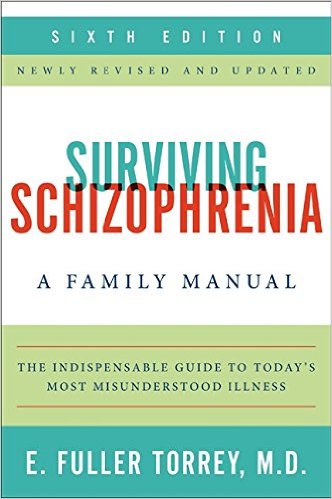
(4-30-18) I had just finished delivering a speech at the NATCOM18 about my relationship with my son. People were waiting off stage afterwards to share their stories.
One man, a mental health worker, stood by the exit until everyone else had gone.
With tears in his eyes, he approached me. His daughter, he explained, had a serious mental illness just like my son. He added, “The meds she was given, killed her.”
In the past twelve years since my book was published, I have received occasional complaints about medications and have been told how dangerous they often are. I have brushed aside most of these comments because nearly all of them came from individuals who were clearly anti-psychiatry or others who had some holistic remedy that had worked for them that they were pushing.
This man, who was clearly mourning his daughter’s death, was a mental health worker, someone in the industry. His credentials gave me pause.
My son has done well on medication. Each time, he has stopped taking his prescription, it has been a disaster. Individuals with mental illnesses often look for reasons to stop taking medicine. I have been reluctant to even question the use of medication because I haven’t wanted to encourage anyone to stop and have a relapse. Yes, medications have dreadful side-effects, but not taking them can cause significant problems.
So what was I to think about this grieving father?
Around this same time, I received an email:
“As I try to write this I’m waiting for my daughter’s Benadryl and sleeping medication to kick in. She has been on the Invega shot for one and half years. Two and half months ago her Dr suggested we go for the three months shot. Unfortunately the day of the shot I had a Dr appointment myself, so a friend took her. Based on her history of less is better than more I had faith the shot would be 145mg times 3. They gave her 800mg. It has been a living hell. You can’t take a shot out, right? Or wait a few weeks to try something else. She is having severe reactions to the Invega now. Oculogyric is the medical term for what is happening now. It begins with agitation and her eyes roll to the ceiling. She has tried all the main drugs for schizophrenia. Clozapine the Cadillac of them all for medication resistant people, caused her white blood count to go extremely low.
My daughter is 31 and has been compliant with medication for 5 years.
Nothing is helping her and all of it is hurting her in one form or another. She was not a danger to herself or anyone before medicated. She heard voices and had some beliefs that where not rational. After her first medication Risperidone the voices talked for her in sometimes ghoulish sounds. On Geodon, she broke things, tried to cut her throat; there is more but my purpose is to add one more to the blame game. The 3 month shot cost $7,000.00, and it is destroying her.
I’m not alone with this medication crisis. I can direct people to a group that I participate in called Caretakers for Schizophrenia. All of us caretakers are going through the life-sucking job of trying to find a medication that does not kill or make the loved one worse off than before. I hope you take the time to read this, I will close by adding that a higher percent – some articles that I’ve read in Psychiatric Times put it at 60% – of people with schizophrenia are medication resistant, meaning nothing works for them. I’m not at all an expert on drug companies but I do know they need to do more research.
I would like you to mention that I’m not at all against medication and my daughter has some good days on it. Once we get her medication stabilized, we will go back to the once a month Invega shot. Continued trials and research is needed for the for the subset of SMI that still suffer from debilitating positive symptoms on medication.
Sincerely,
In his book, Surviving Schizophrenia, the parent’s bible about the illness, Dr. E. Fuller Torrey cites a much lower figure – about 15% seem to have no benefit from medications.
Recently, a number of articles have questioned the widespread use of psychiatric medications. I assume this will continue, in part, because of the nation’s attention to opioids, which are now under attack, sparking concerns about over prescribing of other drugs.
As a parent and not a scientist, I find this debate about medication frustrating, because pro-medication and anti-medication forces each come to the table armed with data that they claim prove their argument.
Because of his expertise, I asked Dr. Torrey for a comment.
Your query is timely since I am in the middle of re-writing the chapter on treatment for the 7th edition of Surviving Schizophrenia. There is no question that antipsychotics can produce fatal side effects although fortunately these are rare. However if the victim is your own family member “rare” means nothing. One example is some antipychotics (eg. Mellaril, Seroquel) prolong the conduction of the electrical impulse causing the heart to beat and if the person has an underlying conduction problem this can cause sudden death. Another example is ketoacidosis, a rapid rise in blood sugar most commonly associated with olanzapine.
The majority of fatal cases have occurred in African Americans, some of whom apparently have a genetic predisposition to this (I published a letter on such a case in the American Journal of Psychiatry 160: 2241, 2003). I suspect the incidence of drug-related fatal cases in schizophrenia is comparable to drug-related fatal cases for heart disease, rheumatoid arthritis or diabetes though I have not seen such a study. The underlying problem however, as the writer notes, is why 60 years after the discovery of chlorpromazine we don`t have more and better drugs to treat this disease. This is especially important at this time since both the drug companies and NIMH have reduced their investment in treatment related research on schizophrenia, and in fact I wrote to Dr. (Joshua) Gordon about this issue a week ago.
Clearly, the brain is complex, individuals react differently to treatments, and there is no magic bullet that works for everyone.
What is also clear is that we need better treatment methods to help those who are suffering.
Tell me your thoughts on my Facebook page at Pete Earley Facebook. Medication is the bedrock of my son’s stability. What have been your experiences?




